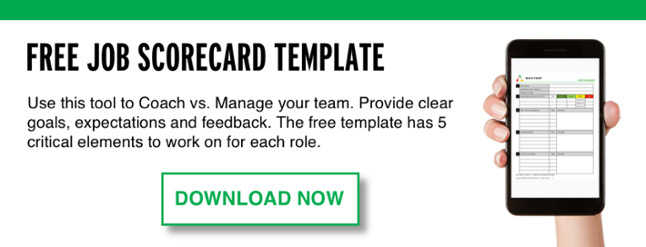Over the past couple of years, many work environments have often felt like a real-life game of Would You Rather - but with no great choices. We have all been backed into making decisions we never thought we'd have to - making tradeoffs that we never expected - and dealing with challenges that generations before us never imagined would exist.
Whether we call it the Great Resignation, the Big Quit, or the End of Engagement, we have all faced incredible challenges which have led to unprecedented uncertainty - our team members have felt it. They continue to feel it leading to several ongoing challenges in the workplace. So let's take a quick, high-level look at some of the top challenges in today's work environment that are driving this culture of uncertainty:

Any one of these factors is enough to challenge the best and brightest people managers - but most organizations are dealing with multiple, if not all, of these issues at once. However, there are several ways to overcome these obstacles and transform our companies from a place of attrition to attraction.
Now is the time to move from survival to a thriving mindset.
Companies are beginning to see the value in setting bold destinations not only for their organizational goals but also in building out all areas of their Core Foundation, including; Purpose, Values, Customer, and Brand Promise. Deloitte's work on changing our mindset in worker-employer relations is challenging leaders to be both empathetic and thoughtful in choosing an envisioned future that encapsulates the balancing act of choice and consequence for teams. As leaders set goals, both for the current horizon and the next, individuals are most passionate when their work connects them to something larger and builds a positive economic and social impact on the world.
Focus on the Basics
Gallup's recent research cites that during any significant challenge in the workplace, it is the basic elements of engagement that are most vulnerable. For leaders to maintain their teams' confidence and build individual resilience, these foundational elements must be in place. Never before has it been so important to give and maintain clarity of expectations in all aspects of job performance. Additionally, managers must provide team members with the right resources to get their work done to meet expectations, all while helping each person find their opportunity to consistently do what they do best.
Clear and Frequent Communication
Next, there must be clear and frequent communication from leadership. Most managers are responsible for implementing leadership decisions while at the same time motivating their teams to get their day jobs done. Incomplete or unclear messaging from the top down sets the stage for managers to not only experience more stress but also creates unnecessary challenges for them as they work to lead their teams - potentially in a direction that they are unsure of pursuing.
Manage Your Managers
With the engagement of managers on a steep decline and their burnout on the rise, development opportunities are becoming specifically tenuous and vulnerable. The desire of any employee is that there needs to be visible and tangible progress towards an agreed-upon outcome. When this doesn't happen, it can lead to a faster disconnect and accelerate interest in opportunities outside our companies where these needs may be met. While we may expect our managers to be meeting and clearly communicating with their teams - it is potentially even more important for those same managers to be seen, heard, and coached on their own performance.
Do the Hard Work to Connect
Everyone has fundamental psychological needs that must be met to achieve high performance, whether working remotely or in a full-time onsite position. It is not enough to be visible or recognized for the work being done. Team members need to know that they are valued, connected to the organization's purpose, and doing work that matters. This takes intentional effort from leaders and managers beyond weekly check-ins, Zoom meetings, and daily stand-ups. We must have the courage and wisdom to demonstrate a consistent, genuine interest in employees as people.
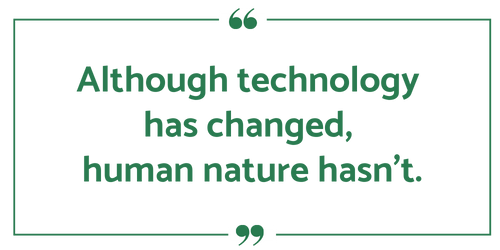
The top three factors employees cited as reasons for quitting were that they didn't feel valued by their organizations (54 percent) or their managers (52 percent) or because they didn't feel a sense of belonging at work (51 percent).
According to a 2021 McKinsey study, employees are grappling with tension in the following key areas:
- Purpose: A shared sense of connection with the company's mission
- Social Connection: Not just transactions, but in-person or virtual interactions and relationships
- To Feel Valued: By their organization, by their colleagues, and by their managers
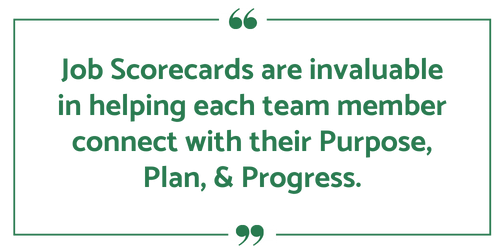
This is where Rhythm Systems Job Scorecards can be invaluable in helping each team member connect with their Purpose, Plan, & Progress.
How to Complete a Job Scorecard
Help each team member know My Purpose - My Plan - My Progress
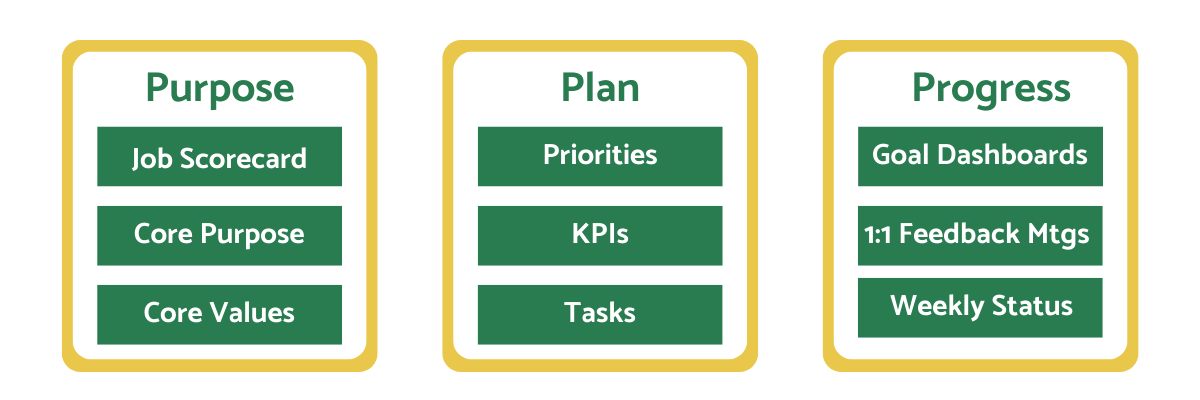
Purpose: Start with WHY
- Job Position: What is your current role? Start by clarifying your position is called and when your role started (Effective date).
Reports To: Who do you report to in your role? For example, do you report directly to the CEO or department head? (Job Score Card is designed to be a high-level snapshot of a job and can co-exist with more detailed job descriptions if they feel like they need more from a compliance standpoint)
- Purpose: Why does this job exist? Begin with the end in mind by starting with the overall purpose of this role within the organization. Understanding the purpose of the role will inform the way you think about the rest of the questions, and taking the time to think about and articulate the purpose of your role in the company will provide meaning to the work that you do and how you contribute to your organization's Core Purpose.
- Desired Results: What are you accountable for, and how will success be measured? What is the visible and measurable evidence that the responsibilities are being met and the purpose is being fulfilled? You can link existing KPIs or Priorities or add new ones to this Dashboard for the key goals associated with your position.
- Key Responsibilities: What do I do? These are the specific processes and activities that are owned by this role and are necessary to fulfill its purpose and achieve the key results. This is not a long list of everything you do but a statement of what you are responsible for accomplishing. One way to approach this is to make a list in a separate document of everything you currently do, then group the related items together in that list. This will help you organize and identify the key responsibilities of your role.
- Skills, Traits, & Competencies: What is required in order to be successful? These are the specific skills, traits, and competencies an individual must possess or develop in order to be successful in this role. It is important that you don't just list things you are good at but rather consider what you would need to look for in an individual that you would want to hire for this role. What is required to successfully fulfill the key responsibilities and achieve the desired results? No one knows better than you what is required to be successful in this role.
- Company Core Values: What behaviors should be demonstrated? These are the Core Values for your company; this section will be pre-filled with information from your company's strategy screens. They are fundamental beliefs that your company holds up and requires of everyone in the organization. They should describe your culture and drive your behavior. This is not about what you do but how you do it. Use this to go a little deeper - these are not just things we say or tell others that are important - this is who we really are at the core of our organization. Take the time to build out descriptions and behaviors - these significantly impact culture - both internal and external.
- Feedback /1:1 Meetings: How am I doing? Customize the agenda to drive the most meaningful conversations. Spend time with your direct reports: Reviewing progress; Celebrate wins; Making adjustments; Coaching toward what's next; Get personal and make connections.
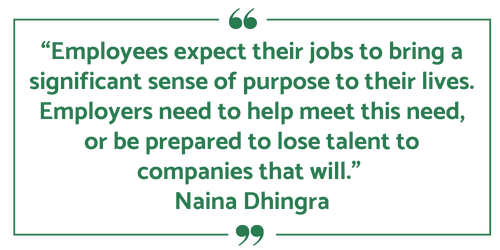
Learn more about job scorecards from these blogs:
Photo Credit: iStock by Getty Images



 LinkedIn
LinkedIn
 Facebook
Facebook
